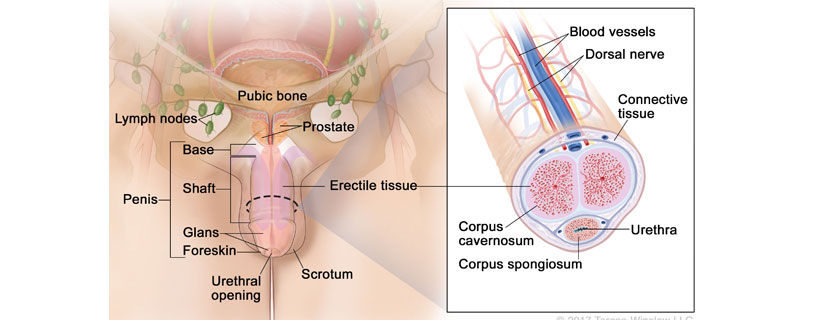Book Appoinment
Penile Cancer


Penile cancer is a rare form of cancer that develops in the tissues of the penis. It most commonly affects older men and is relatively uncommon in developed countries. Penile cancer often originates in the skin cells of the penis and can potentially spread to other parts of the body if not detected and treated in the early stages.
Causes:
The exact cause of penile cancer is not fully understood, but certain risk factors have been identified:
- Poor hygiene: Lack of proper hygiene, including failure to clean the penis regularly, may increase the risk of penile cancer.
- Phimosis: A condition in which the foreskin of the penis cannot be fully retracted, leading to poor hygiene and increased risk of cancer.
- Human papillomavirus (HPV) infection: Certain strains of HPV, particularly HPV types 16 and 18, have been associated with an increased risk of penile cancer.
- Smoking: Smoking tobacco increases the risk of developing penile cancer.
- Age: Penile cancer is more common in older men, typically over the age of 50.
- History of genital warts: Having a history of genital warts caused by HPV infection may increase the risk of developing penile cancer.
Symptoms:
Signs and symptoms of penile cancer may include:
- Changes in the skin of the penis: The appearance of a lump, sore, or ulcer on the penis that does not heal or continues to grow.
- Discoloration: Changes in the color of the skin of the penis, such as redness, darkening, or whitish patches.
- Penile bleeding: Bleeding from the penis, which may occur spontaneously or during sexual activity or urination.
- Foul-smelling discharge: Discharge under the foreskin that may be accompanied by an unpleasant odor.
- Pain or discomfort: Pain or discomfort in the penis, particularly in advanced stages when the cancer has spread.
